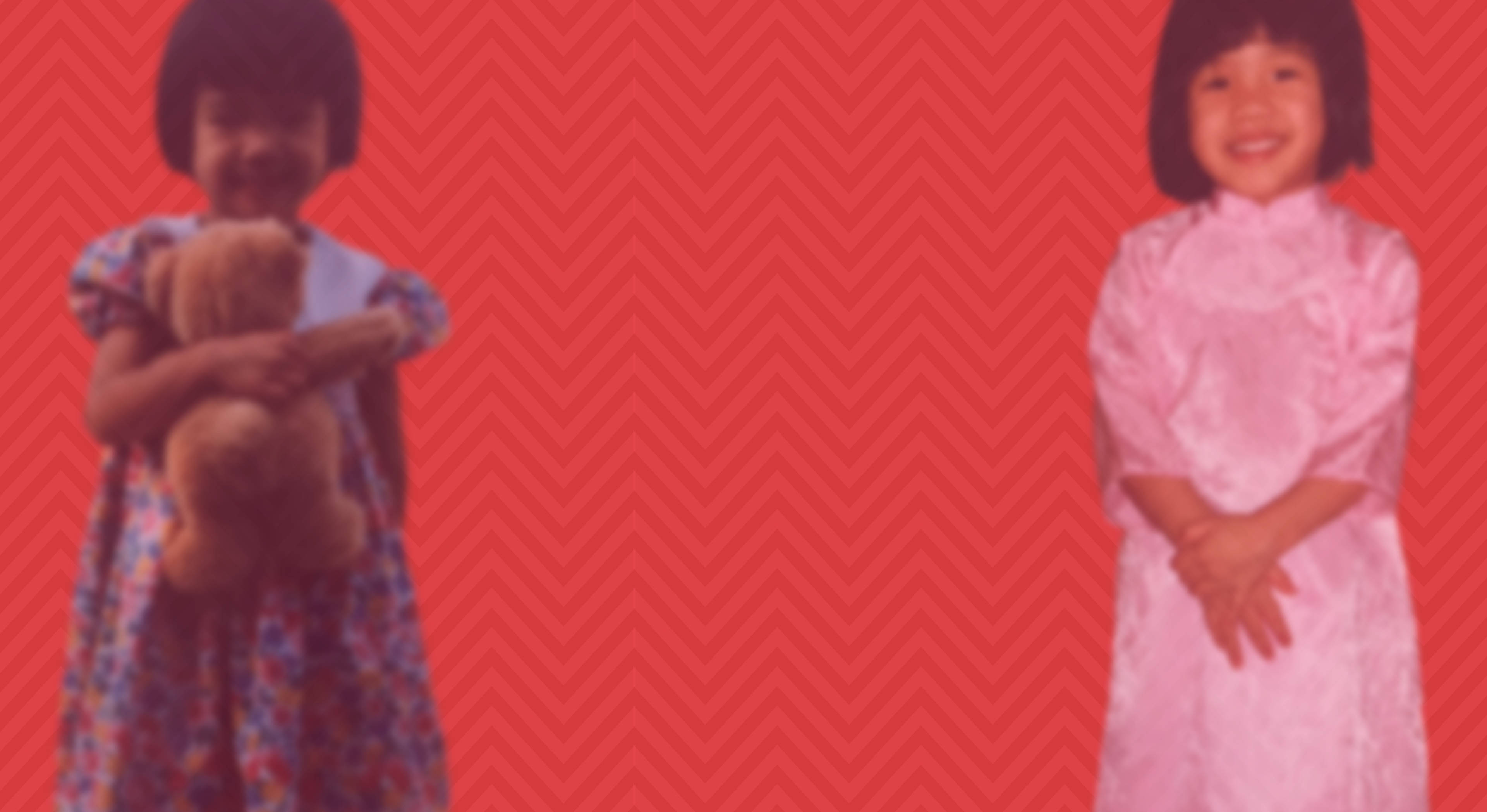As a kid I didn’t see or read about any characters who called their parents Ba and Mẹ instead of Dad and Mom. I never saw signature items from my household: a rice cooker, straw brooms, Paris by Night DVDs. The hashtag #ownvoices is about writing yourself into existence after years of being silenced, underrepresented, or grossly misrepresented in books, so I wrote A Phở Love Story to describe my Vietnamese American experience, which I acknowledge is just a sliver of the vast Vietnamese American history.
My Vietnamese family has always been a central part of my life.
Any scenes that involved family were inspired by my own past. For example, whenever my family and I made chả giò (egg rolls) or mì hoành thánh (wonton soup), I was the designated “peeler,” delicately separating thawed wrappers. I made my leading character, Linh, a peeler too. In another scene, a family celebrates a toddler’s one-year birthday by letting her choose from different objects, each representing a career or a path. It’s a ceremony I always like to watch, so I enjoyed incorporating these details into my novel.
On a deeper narrative level, I was fascinated by the complex family dynamics in coming-of-age stories—how some families handle secrets and love a bit differently and how that affects a teen’s growth. While enrolled in a young adult literature class in college, the novels I read focused on the characters’ path to adulthood, yet in doing so, the parents were either erased from the storyline or demonized. I yearned to see more families in these novels.
I hoped to explore the culture of secrets in a family that had undergone wartime troubles, and how that culture affects the next generation.
My Vietnamese family has always been a central part of my life. My mom, aunt, uncle, and two cousins fled by sea after the Fall of Saigon, landed in the Philippines, then arrived in America. They knew little English and had little to live on, yet the surest thing they could count on was family. Family still comes first today.
I hoped to explore the culture of secrets in a family that had undergone wartime troubles, and how that culture affects the next generation. Recently my mom remarked that people of her time prefer not to speak of their emotions—even if it’s happiness. They fear burdening other people. They fear getting lost in memories, when there are more pressing matters to worry about. In some silent moments, my parents might reveal an important encounter from the past that sends my mind into a quick spiral—a revelation, a confession, all said as an afterthought. I was accustomed to these unsaid words; I made room for them in my life. My characters know this too. Gradually, though, they see the toll of secrets on their own relationships and their relationship with their parents.
This quiet love is an action, not an expression.
In my novel, I tried to correct what is often misconstrued by people outside of Asian culture. When I became aware of the term “tiger mom,” after the publication of Amy Chua’s Battle Hymn of the Tiger Mother and the discourse that followed, I was uncomfortable. I despised that this was the default description for Asian parents. Of course, there is truth to our parents’ strictness, and I admit to seeing my friends suffer under this. However, I don’t think my parents were at the level of Chua’s, so to me, as rigid as they were in their parenting, the love was there. Not an unabashed love, but a quiet love.
This quiet love is an action, not an expression. It’s seen in the way my characters’ parents wake them up in the morning with freshly made pastries, work long hours to support the family, and feed them, even if they’ve already eaten.
Do I believe that love within Vietnamese families—Asian families, immigrant and refugee families, etc.—should be louder? Yes, and I hope future generations will have that. I see a shift in the expression of love between parent and child when I spend time with my teenage second cousins. Even with myself, being the youngest of three in my family, I am freer with my emotions. Now, when I end calls with my mom, I often say in a playful tone, “I love you, Mama.” I almost always call her Mẹ, but I occasionally use Mama; I’m not sure when or how that started. Without missing a beat, my mom replies in that same baby voice, “I love you, girl.”
Ultimately A Phở Love Story is about celebrating joy and love, and in the end I felt a catharsis in putting myself on-page.
I look forward to reading even more #ownvoices stories by Vietnamese American writers, and the narratives they decide to share with the world. My novel includes trauma, unsaid things, and complicated family relations, often stemming from the Vietnam War, because that was my childhood. But ultimately A Phở Love Story is about celebrating joy and love, and in the end I felt a catharsis in putting myself on-page. Soon there will be fellow Vietnamese American writers whose ties to the war aren’t as immediate, who pour their hearts out just to help other readers feel seen. I can’t wait to uplift their stories too.
Loan Le is the youngest child of two Vietnamese immigrants hailing from Nha Trang. She holds an MFA degree in fiction from Fairfield University, also her undergraduate alma mater. A Pushcart Prize–nominated writer, her short stories have appeared in CRAFT Literary, Mud Season Review, and Angel City Review. Loan is an editor at Simon and Schuster's Atria Books imprint and lives in Manhattan. A Pho Love Story is her first novel.


